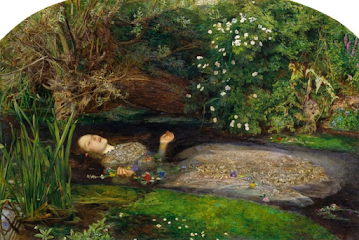Journalism and Public Writing
In a plethora of ways, journalism evolves with the expansion of technology. Beginning with scribes who wrote down news passed on from merchants and sailors to the Town Crier delivering handwritten declarations from the King to subjects, expanding at the gossip table of many taverns, news of the times has found its way into the busy lives of every society. As time raced forward, the printing press ruled for hundreds of years as trained journalists shared the inside story on the pages of pamphlets, newspapers, magazines, and books of all shapes and sizes. Then the television showed Man walking on the moon, and talking heads (newscaster celebrities) were born. And for just a smidgen of time, computers have become all the rage where it takes the blink of an eye to rule the information world when news of any situation deemed worthy enough of a post can reach from Oklahoma to China, to India, and Ukraine in a matter of moments. With the invention of the internet, in less time than it took for information to pass around one village, it can now get broadcast into every home around the entire world.
 The most difficult part of this mass influx of information is sorting out and searching through the haystack of fraudulence to find the shining needle of truth. Opinions mingle with facts to the extent of making it improbable or even impossible to discover the elusive gold at the end of a rainbow, making the journalists that society once relied heavily on for truth, appear more like Leprechauns full of trickery and deceit. All the while they are wearing trained smiles and spewing forth sheepskin coated lies. Or not, although there are many wolves, some journalists turn from this temptation and bring us brilliant gems that broaden our understanding of occurring life. Criticism has been a part of journalism too, from the writings of Dryden, to the YouTube blogger, to CNN round tables, criticism is a major component, like it not. Now that I have that off my chest, let's get to the meat of Journalism over the ages.
The most difficult part of this mass influx of information is sorting out and searching through the haystack of fraudulence to find the shining needle of truth. Opinions mingle with facts to the extent of making it improbable or even impossible to discover the elusive gold at the end of a rainbow, making the journalists that society once relied heavily on for truth, appear more like Leprechauns full of trickery and deceit. All the while they are wearing trained smiles and spewing forth sheepskin coated lies. Or not, although there are many wolves, some journalists turn from this temptation and bring us brilliant gems that broaden our understanding of occurring life. Criticism has been a part of journalism too, from the writings of Dryden, to the YouTube blogger, to CNN round tables, criticism is a major component, like it not. Now that I have that off my chest, let's get to the meat of Journalism over the ages. Once upon a time, there were journalists who believed their position to be of great importance and desired to give the facts of a situation to their dear readers. Some writers were able to do this with tact and style. Newspapers were popularized with the invention of the movable printing press. Among these authors were Joseph Addison and Robert Steele. Now, let us not under any delusion that those who wrote truth did not have a slant or a bias, and neither did these two men. Contrarily, they wrote with the very intent of influencing their readers into bettering themselves, and what better way to do that? Why by reading their paper The Spectator of course! Men and especially women were encouraged to read their articles, such as No. 411, The Pleasures of the Imagination, written in 1712. In that article, the readers are encouraged to better their minds, their health, and their circumstances by "receive(ing) into all the varieties of picture and vision that are most agreeable to the imagination."
Forty-six years later, Samuel Johnson, a man of many writing talents, including writing the first dictionary, assessing Shakespeare, and wrote a periodical called, the Idler, and in article No. 31 he wrote On Idleness. In this periodical, he, like Addison, was not shy about his intention to influence the readers. Johnson implored his readers to not only vehemently abstain from idle actions, but he lists exactly how to tell if someone else is portraying these traits. In the last sentence, he writes, "What will be the effect of this paper I know not; perhaps he will read it and laugh, and light the fire in his furnace, but my hope is that he will quit his trifles, and betake himself to rational and useful diligence."
 |
| C.R. Watt: Writer's Voice 2020 |
As always, enjoy the video below. Switchfoot: Selling The News
References
Switchfoot,
“Selling The News.” YouTube, uploaded by blksab406, December 21, 2011, https://www.
youtube.com/watch?v=wgPYk3ppz-c.
Wikipedia
contributors. "History of journalism." Wikipedia, The Free
Encyclopedia. Wikipedia, The Free Encyclopedia, 11 Aug. 2020. Web. 14 Oct.
2020.






Well said.
ReplyDeleteA book is like a friend that you can leave alone then come back to with a clear conscience. A good book is like a good friend that you return to often. Journalism of today is little different than that of 150 years ago. Journalists still have their agendas and they have changed little since the advent of the great papers of the 19th Century. They are no more honest today than those journalists that followed the army of General Sherman in the Civil War. Their relationship with the military has grown no better. When Sherman uttered that he might like to kill all journalists he recognized that there would be news from hell by breakfast.
The advantage of a blog is that the blogger controls who sees and who responds to the blog. That control allows a little more latitude in subject and tenor of the writing. My own blog is written strictly from the perspective of a veteran of the Civil War living in the 1870's. In that way I need not worry about some twit taking offense at political views and being able to control who comments and approving, or not, those comments allows a more regulated environment. A blog, unlike places like Facebook allows freer thoughts to enter the ether and perhaps even more honest ones.
Willy's Dad, Thank you for your thoughts. What is your blog address? I would like to check it out!
ReplyDeleteI agree that Journalists have an agenda. It is short of impossible to write about a subject without giving it some sort of slant. The writer is looking through a lens of their own, and can only tell what They see.
I do like the control I have over the blog over the frivolity of Facebook. The comments here are constructive, whereas FB people feel free to mean harsh and destructive.